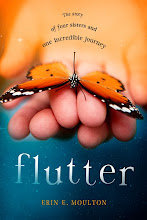
This week we welcome the lovely Kathi Appelt.
Kathi is the author of over thirty books for children and young adults including The Underneath, Kissing Tennessee, Miss Lady Bird’s Wildflowers and the Bubba and Beau series to name just a few! She has taught creative writing to both children and adults and currently serves on the faculty at Vermont College of Fine Arts in their MFA in Writing for Children and Young Adults program.
Her books have won numerous national and state awards, including the Irma and Simon Black Award, Children’s Choice Award, Teacher’s Choice Award, the Oppenheimer Gold Award, Parent’s Choice Award, Storytelling World Award, Growing Good Kids Award, the Teddy Award, the Texas Institute of Letters Award, Best Books for Young Adults, VOYA Top of the Shelf Award, and a host of others. Her middle grade novel, The Underneath, recently garnered her a Newbery honor and catapulted her to the National Book Awards as a finalist.
Kathi is a highly sought-after speaker in schools, conferences and workshops and is a brilliant teacher with whom I had the honor to work with while at VCFA.
EEM: Thank you for joining us this week! Let's get started.
Did you always want to be a writer? If no, what was your initial dream and what led you to writing later?
KA: My first dream job was cowgirl. I wanted to ride the wide open ranges atop my trusty pony, sleep out under the stars, chase bad guys, twirl my lasso over my head. It was a big, big dream. The only problem was that I lived smack in the middle of a big, big city, Houston. And horses were hard to come by, not to mention all those rangelands and cattle and lassoes.
In the meantime, I can't remember a time when I didn't write. My aunt gave me a diary in the second grade and somehow having that private space to put down all of my thoughts and ideas . . . it was like a launching pad I guess.
Add to that the many wonderful teachers I've had across the years, and I guess it was inevitable.
EEM: When you began, was it instant success and riches or did you find you had to work other jobs in order to continue your dream of being a writer?
KA: Oh, don't all of us want instant success? Especially in our instant world where you can get the instant answer to a question in a flash? Talk to someone across the world in an instant. So many instants, not to mention coffee.
It took me many years of writing, writing and more writing before I got my first contract, and even then it took more years to really get my footing.
EEM: What jobs have you held to help sustain your writing career?
KA: I worked in a bookstore. I worked as a waitress. I worked as a secretary. The worst job ever--I had a summer gig sewing sequins on costumes for the Ice Capades. I thought I'd die of boredom. You have no idea how long an hour can be until you spend it sewing sequins onto Ice Capade costumes.
EEM: Oh wow, how did you come across this job? Actively seeking or by chance?
KA: I actually don't remember, to be honest. For a small spell I wanted to work in theater, and someone recommended this job to me. I knew how to sew, I liked glittery things, so hey, why not. I lasted two weeks.
EEM: What was your favorite thing about this job?
KA: I really liked the man who was the designer. He was a sweetheart.
EEM: Least Favorite?
KA: I had to wax the thread, which helped keep the sequins from cutting through the thread. My fingers ached from the tiny stitches I had to take.
EEM: Did your day job allow you to write regularly? Or did you have to get creative to get those word counts in?
KA: Finding balance is always the quest for any artist, I think. It's easy to let everyday things take priority. And not only that, but things like Ice Capade costumes can definitely be a good excuse for not writing. After all, fingers are required (for the most part) and achy fingers do not want to write.
EEM: What other effects did it have on your writing?
KA: It made me more earnest. Made me more serious. Made me regard time in a different way.
EEM: Were there any fun stories from the job that inspired your stories?
KA: Hmmm...I think at some level, every experience I've ever had has shown up in my writing in some form or fashion. I have a story about a jelly jar that I want to include in a story someday, but so far I haven't found the right place for it. I tend to "collect" stories from my life, and then look for opportunities to use them.
EEM: Have you ever based a loved protagonist or an evil villain on one of your co-workers? Wished you had?
KA: Not that I really recall, or that I'm willing to say in public.
EEM: Haha! I wouldn't admit to it, either. Though, for the record, I would be scared to imagine you basing Gar Face on someone you knew! He must be pure fiction :)
Thank you for taking the time to answer these interview questions. I especially liked the part where you spoke about the job making you value time differently. Food for thought.
Have a great week everybody!

